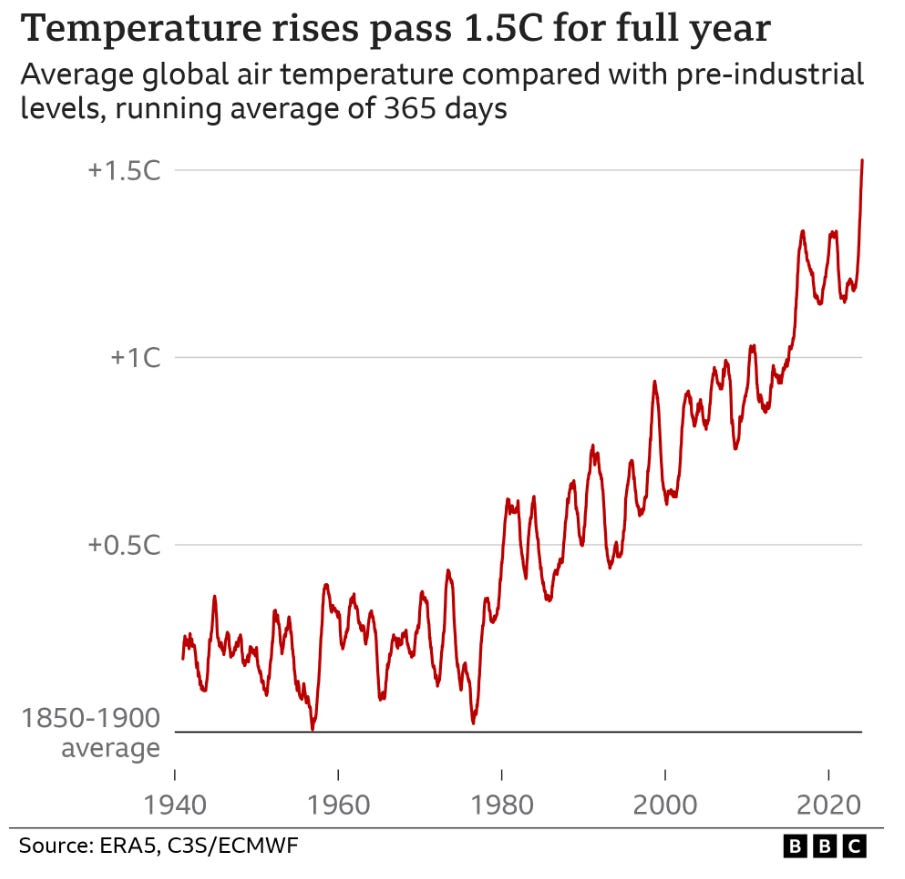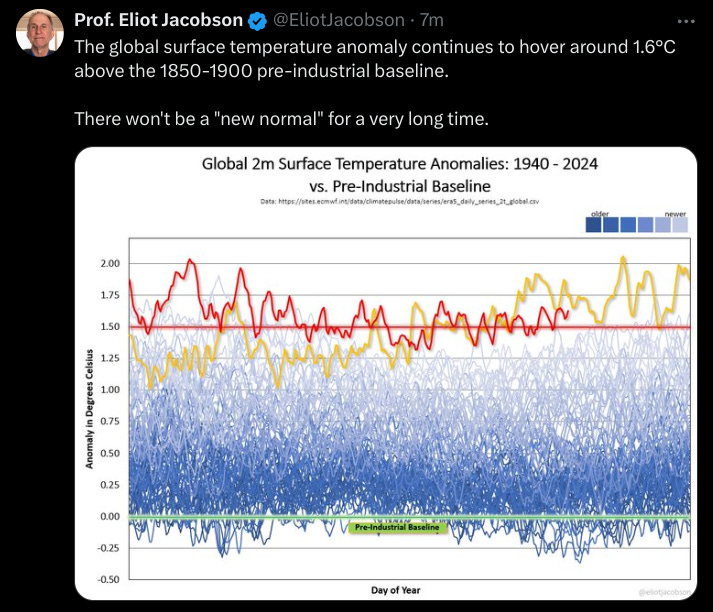[ad_1]
Yves right here. This newest local weather sighting is a really huge addition to a protracted and rising listing of significantly unfavorable growth, not less than so far as the survival of one thing dimly resembling fashionable life seems to be like. It appears unlikely that carbon sinks turning into a lot much less efficient was contemplated in local weather modeling. So this growth quantities to a serious accelerant.
By Thomas Neuburger. Initially revealed at God’s Spies
I very a lot dislike local weather alarm posts nowadays for causes already acknowledged (see “Title the Rattling Perp”).
However local weather information posts, alternatively, deserve our discover — particularly, posts about unanticipated adjustments in “disaster scheduling.” We’ve been taught by those that get wealthy from the oil financial system that “worrying later is ok; the disaster received’t come for many years, if in any respect.”
Sadly for them and us, information that the disaster will not be sticking to schedule appears all the time to seem. That is a type of tales.
Carbon Sinks Are Failing
From The Guardian we be taught:
Bushes and land absorbed nearly no CO2 final yr. Is nature’s carbon sink failing?
The sudden collapse of carbon sinks was not factored into local weather fashions – and will quickly speed up international heating
A carbon sink is a factor or a course of that removes CO2 from the air. Our oceans are CO2 sinks. CO2 within the air dissolves in ocean water the identical method it dissolves in common water. There are different CO2-removal processes at work within the oceans. Like this one:
It begins every day at dusk. As the sunshine disappears, billions of zooplankton, crustaceans and different marine organisms rise to the ocean floor to feed on microscopic algae, returning to the depths at dawn. The waste from this frenzy – Earth’s largest migration of creatures – sinks to the ocean ground, eradicating hundreds of thousands of tonnes of carbon from the ambiance every year.
This exercise is one in every of hundreds of pure processes that regulate the Earth’s local weather. Collectively, the planet’s oceans, forests, soils and different pure carbon sinks take in about half of all human emissions.
After the compulsory “scientists are involved” disclaimer that comforts the uncomfortable (extra on that under), we see this:
In 2023, the most popular yr ever recorded, preliminary findings by a global group of researchers present the quantity of carbon absorbed by land has quickly collapsed. The ultimate end result was that forest, vegetation and soil – as a web class – absorbed nearly no carbon.
There are warning indicators at sea, too. Greenland’s glaciers and Arctic ice sheets are melting sooner than anticipated, which is disrupting the Gulf Stream ocean present and slows the speed at which oceans take in carbon. For the algae-eating zooplankton, melting sea ice is exposing them to extra daylight – a shift scientists say might maintain them within the depths for longer, disrupting the vertical migration that shops carbon on the ocean ground.
In keeping with one of many scientists concerned within the examine, “Nature has to date balanced our abuse. That is coming to an finish.”
After extra disclaimers — this could possibly be short-term; all might nonetheless be effectively — the author says this:
The form of fast land sink collapse seen in 2023 has not been factored into most local weather fashions. If it continues, it raises the prospect of fast international heating past what these fashions have predicted.
Certainly.
A Notice: ‘Scientists Are Involved’
Paragraph three, excessive sufficient within the Guardian piece to be really learn, states: “However because the Earth heats up, scientists are more and more involved that these essential processes are breaking down.”
It is a key a part of the meta content material of the story. This phrasing, whereas correct, places the concentrate on the scientists, not the issue, and emphasizes their “concern,” a light emotion.
A greater, extra correct assertion is the next: “These essential processes are breaking down.” Interval.
As a result of they’re. The supply of the Guardian article makes that clear. The authors say that “CO2 development fee was … 86% above the earlier yr” (a reality), but CO2 emissions solely elevated by “0.1 to 1.1 %” (one other reality). Why the distinction? CO2 elimination has severely slowed or stopped.
It’s a easy equation. What goes into the air is a quantity. What stays is one other quantity. The distinction, a minus b, is what’s taken out. The quantity taken out final yr is vastly smaller than any earlier yr. The paper accounts for fluxes and latency. The information and scientists are clear: The carbon sink impact “is coming to an finish.”
The Guardian, although, would slightly mitigate your worry than provide you with straight info. Thus “scientists are involved,” not “right here’s what’s occurring.” The reader can resolve who The Guardian is defending.
Be Ready
One other failure within the local weather system says the disaster is forward of schedule as our rulers outline it. (Their projected schedule is no matter retains you from feeling afraid.)
Warming is already properly above the magic +1.5°C mark that the IPCC stated spells catastrophe.

And +2°C will not be far behind.


[ad_2]
Source link



